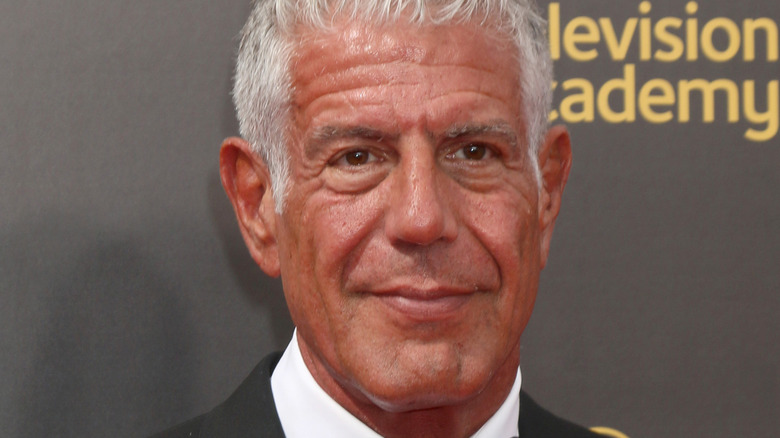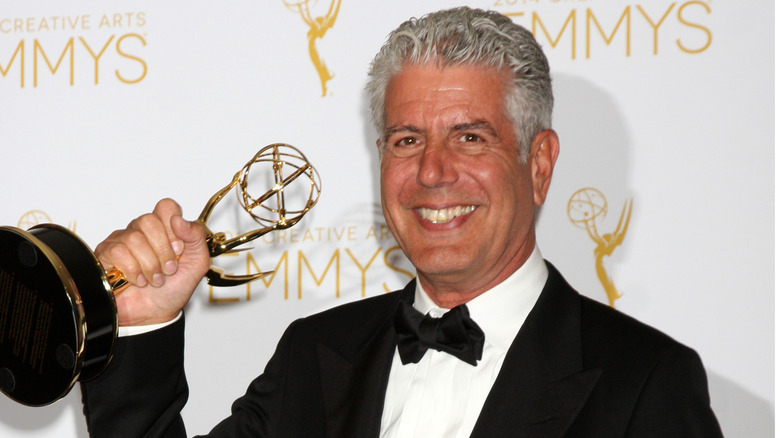What Makes The New Bourdain Book Down And Out In Paradise Different From The Rest
Love him or hate him... wait, is it possible to actually hate him? Doubtful. Anthony Bourdain is everyone's hero. Authentic. Genuine. Talented. Wordsmith. Creator. Artist. Genius. And on and on it goes. Every too-soon death is deemed tragic, but something about Tony's seemed to hit even deeper for those in the industry and those that loved him. He had "it," and we still haven't quite been able to put our finger on what that "it" is. But he had it. And he is missed.
The Road Runner documentary, per The New Yorker, seemed to do him proud. An even deeper insight into a very deep man, whether you caught it in the theaters or streamed it at home, one thing is for certain — it stuck with you. The final bow on the culinary god's gift to us, everything seemed to wrap up cohesively and positively. We understood him finally, or so we thought.
Until now. Some stories are better left untold. Some details are better left out. But, is the general public entitled to such minutiae just because one's work happened to be for public viewing and interpretation?
Bourdain's family protests the book's release
"Down and Out in Paradise," per The New York Times, a new book detailing Anthony Bourdain's life and suicide written by Charles Leerhsen, is hitting the bookstore shelves next month, on October 11. The work contains intimate details, text messages, and last words that some may deem not worthy of public consumption. Over 80 pieces of communication, including text messages and emails, are included in the book from his final days. Mr. Bourdain was arguably not in a healthy state at the time, and the book intends to remove the shiny filter from his public persona and expose just that.
Mr. Bourdain's family is not happy with the book, protesting its release. Many close to him declined an interview, "unauthorized" the word at the tip of the tongue, according to Simon & Schuster. Per The New York Times, Bourdain's brother, Christopher, said in an interview that "Every single thing he [the author] writes about relationships and interactions within our family as kids and as adults, he fabricated or got totally wrong." What does that tell us? Is there any truth in the book's words? Are some things best left unsaid? Are intimate details not privy to the public? Questions are best left to the consumer, though there is a fine line between theory and fact.
If you or anyone you know is having suicidal thoughts, please call the National Suicide Prevention Lifeline by dialing 988 or by calling 1-800-273-TALK (8255).

